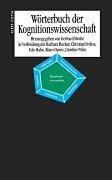| Listing 1 - 10 of 144 | << page >> |
Sort by
|
Book
ISBN: 9783937816258 Year: 2006 Publisher: Hamburg Hamburg University Press
Abstract | Keywords | Export | Availability | Bookmark
 Loading...
Loading...Choose an application
- Reference Manager
- EndNote
- RefWorks (Direct export to RefWorks)
Formation of order and cognition are interdependent. Knowledge presupposes the observation of order structures or their creation through abstraction and modelling. Contributions from different areas of university research examine structures that relate to (partially) autonomous actors (or agents) and the dynamic processes in which they are developed. Processes of knowledge that take place in this context require structures of order that can be experienced interobjectively, and in some cases can also be grasped in symbolism and rituals, even if these structures are created simultaneously with processes of action or knowledge. Recursive references can lead to forms of self-organization. In more highly developed structures, aspects of knowledge, learning (and forgetting) can be included and additionally strengthened or weakened by emotional states.On November 5, 2005, scientists came together for a workshop on "Formation of Order and Knowledge Processes" at the University of Hamburg. In this volume, numerous of the given talks and articles are collected.
Book
ISBN: 3631485581 Year: 1995 Publisher: Frankfurt am Main : Lang,
Abstract | Keywords | Export | Availability | Bookmark
 Loading...
Loading...Choose an application
- Reference Manager
- EndNote
- RefWorks (Direct export to RefWorks)

ISBN: 3608917055 9783608917055 Year: 1996
Abstract | Keywords | Export | Availability | Bookmark
 Loading...
Loading...Choose an application
- Reference Manager
- EndNote
- RefWorks (Direct export to RefWorks)
Book
Year: 2005 Publisher: München Verlag C. H. Beck
Abstract | Keywords | Export | Availability | Bookmark
 Loading...
Loading...Choose an application
- Reference Manager
- EndNote
- RefWorks (Direct export to RefWorks)
Book
ISBN: 9783161519352 Year: 2012 Publisher: Tübingen Mohr
Abstract | Keywords | Export | Availability | Bookmark
 Loading...
Loading...Choose an application
- Reference Manager
- EndNote
- RefWorks (Direct export to RefWorks)
Book
ISBN: 3946198406 3946198430 Year: 2019 Publisher: Cologne Modern Academic Publishing
Abstract | Keywords | Export | Availability | Bookmark
 Loading...
Loading...Choose an application
- Reference Manager
- EndNote
- RefWorks (Direct export to RefWorks)
The subject of this thesis is a computational linguistic model of Meaning Constitution in linguistic units. Taking the phenomenon of variability of linguistic meaning as its starting point, Meaning Constitution is described as an information-processing step, which is then implemented and empirically tested in a series of linguistic experiments. In this thesis, Meaning Constitution is understood as a dynamic process in which the meaning of linguistic units only becomes concrete within local contexts in relation to their general meaning potential. This dynamic concept of meaning is based on a central assumption of Cognitive Semantics, according to which meanings do not exist independently of the context. The motivation for the implementation of a computational linguistic model of its own is the fact that the conception of meaning in Cognitive Semantics itself does not involve such an operationalisation – which, strictly speaking, means that it must be regarded as not falsifiable.
Book
ISBN: 3495479899 Year: 2001 Publisher: Freiburg Alber
Abstract | Keywords | Export | Availability | Bookmark
 Loading...
Loading...Choose an application
- Reference Manager
- EndNote
- RefWorks (Direct export to RefWorks)
Act (Philosophy) --- Philosophy and cognitive science --- Philosophy of mind --- Thought and thinking
Book
ISBN: 3846745936 Year: 2008 Publisher: Paderborn : Wilhelm Fink Verlag,
Abstract | Keywords | Export | Availability | Bookmark
 Loading...
Loading...Choose an application
- Reference Manager
- EndNote
- RefWorks (Direct export to RefWorks)
Mensch-Maschine-Hybridbildungen machen Dinge sprechen und Menschen teilwei-se zu Maschinen. Self-aware objects und smart things über-schreiten die Grenze zwischen intelligenten Wesen und Dingen: Ein im Hemd eingebauter Chip erlaubt es der Waschmaschine, automatisch das benötigte Waschprogramm zu erkennen. Menschen werden andererseits durch eingebaute Maschinen in ihrer Wahrnehmungs- und Leistungsfähigkeit gesteigert. Mensch-Maschine-Hybride dienen der Entlastung des Menschen und schaffen ein Spektrum zusätzlicher Dienstleistungen, die zu einer Leistungssteigerung von Nutzersystemen führen. Wenn Maschinen Systeme prüfen, sind die Resultate meist besser, als wenn Menschen prüfen. Wenn Maschinen Menschen in be-stimmten Funktionen überlegen sind, - um wie viel mehr könnten es Mensch-Maschine-Hybride sein. Ihre Wirkung kann eine gesteigerte Realität, eine „augmen-ted reality“, für den Menschen sein. Sind Mensch-Maschine-Hybride Horrorszenarien des Transhuma-nismus oder Formen menschli-cher Selbststeigerung? Das Buch gibt eine erste Auskunft über die Zukunft der intelligenten Dinge und der Hybriden aus Mensch und Maschine.
Artificial intelligence. --- Human-machine systems --- Technology --- Cognitive science. --- Philosophy. --- Human-machine systems.
Book
ISBN: 9783525569825 Year: 2009 Publisher: Göttingen Vandenhoeck & Ruprecht
Abstract | Keywords | Export | Availability | Bookmark
 Loading...
Loading...Choose an application
- Reference Manager
- EndNote
- RefWorks (Direct export to RefWorks)
Brain --- Cognitive science --- Consciousness --- Philosophical anthropology --- Philosophy and cognitive science --- Philosophy of mind --- 215 --- Mind, Philosophy of --- Mind, Theory of --- Theory of mind --- Philosophy --- Metaphysics --- Cognitive science and philosophy --- Anthropology, Philosophical --- Man (Philosophy) --- Civilization --- Life --- Ontology --- Humanism --- Persons --- Apperception --- Mind and body --- Perception --- Psychology --- Spirit --- Self --- Science --- Cerebrum --- Mind --- Central nervous system --- Head --- Religious aspects --- Godsdienst en wetenschap --- Christian dogmatics --- Physiology of nerves and sense organs
Book
ISBN: 3884798960 9783884798966 Year: 1994 Publisher: Würzburg: Königshausen und Neumann,
Abstract | Keywords | Export | Availability | Bookmark
 Loading...
Loading...Choose an application
- Reference Manager
- EndNote
- RefWorks (Direct export to RefWorks)
Philosophy of mind. --- Philosophie de l'esprit --- Philosophy of mind --- Mind, Philosophy of --- Mind, Theory of --- Theory of mind --- Philosophy --- Cognitive science --- Metaphysics --- Philosophical anthropology
| Listing 1 - 10 of 144 | << page >> |
Sort by
|

 Search
Search Feedback
Feedback About UniCat
About UniCat  Help
Help News
News